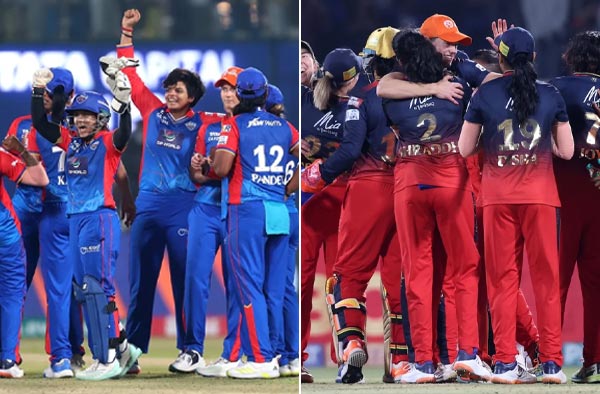In the world of cricket, the Indian Premier League (IPL) has long reigned supreme, captivating audiences with its thrilling matches and star-studded line-ups. However, in recent years, a new dawn has emerged for women’s cricket in India with the advent of the Women’s Premier League (WPL). As the 2024 edition of the WPL draws to a close, it presents a historic moment as two powerhouse franchises, Royal Challengers Bangalore (RCB) and Delhi Capitals, battle it out for the coveted title. Notably, neither of these franchises has clinched the championship in either the IPL or the WPL, setting the stage for a new chapter in cricket history.

The IPL, known for its glitz, glamour, and high-octane cricketing action, has become a global phenomenon since its inception in 2008. With its innovative T20 format and city-based franchise system, the league has transformed the cricketing landscape, attracting top talent from around the world. However, while the IPL has flourished on the men’s circuit, the women’s game has often played catch-up, until now.
The Women’s Premier League, introduced in 2023, marked a significant milestone for women’s cricket in India. Spearheaded by the Board of Control for Cricket in India (BCCI), the WPL aimed to provide a platform for female cricketers to showcase their skills and compete at the highest level.
The journey of Royal Challengers Bangalore (RCB) in the Women’s Premier League exemplifies the ebbs and flows of competitive sport. In the inaugural 2023 season, RCB struggled to find their footing, despite boasting a star-studded roster featuring global icons such as Ellyse Perry, Sophie Devine, Heather Knight, and Smriti Mandhana. However, adversity only fueled their determination, and in the 2024 edition, RCB staged a remarkable comeback, clinching a spot in the knockout stages for the first time in their brief WPL history.
On the other side of the spectrum stands Delhi Capitals, a franchise with a rich legacy in the IPL. Formerly known as Delhi Daredevils, the team rebranded as Delhi Capitals in 2019, symbolizing a fresh start and renewed ambition. In the Women’s Premier League, Delhi Capitals have been a formidable force, reaching the final in both editions of the tournament. Led by a blend of experience and youth, they have set their sights on clinching the elusive title and etching their names in the annals of cricket history.
As RCB and Delhi Capitals lock horns in the final showdown of the 2024 Women’s Premier League, the significance of this moment cannot be overstated. Not only does it promise an exhilarating display of cricketing prowess, but it also represents a milestone in the journey towards gender equality in sports. For years, women’s cricket has played second fiddle to its male counterpart, overshadowed by a lack of opportunities and resources. However, with initiatives like the WPL gaining momentum, the tide is turning, paving the way for a brighter future.
The prospect of a new champion being crowned in both the IPL and the WPL signifies a paradigm shift in cricketing culture. It breaks the monopoly of traditional powerhouses and opens the door for underdogs to rise to prominence. Moreover, it sends a powerful message to aspiring young cricketers, especially girls, who dare to dream of making it big in the world of sports.
The impact of having a new winner in the history of both tournaments extends far beyond the cricket field. It ignites a sense of pride and inspiration among fans, encouraging them to rally behind their favorite teams and players. It also highlights the importance of inclusivity and diversity in sports, emphasizing that talent knows no gender.
Furthermore, the success of the Women’s Premier League serves as a catalyst for change, prompting stakeholders to invest more resources into women’s cricket development. By providing a platform for female athletes to shine, the WPL not only elevates the profile of the sport but also creates role models for future generations to emulate.
In conclusion, as Royal Challengers Bangalore and Delhi Capitals prepare to write a new chapter in cricketing history, they carry with them the hopes and aspirations of millions of fans across the globe. Their journey in the Women’s Premier League symbolizes the relentless pursuit of excellence and the triumph of the human spirit. Regardless of the outcome, their participation in the final is a victory in itself—a testament to the enduring legacy of cricket and the limitless potential of women in sports. As the world watches with bated breath, one thing is certain: the future of cricket, especially women’s cricket has never looked brighter.